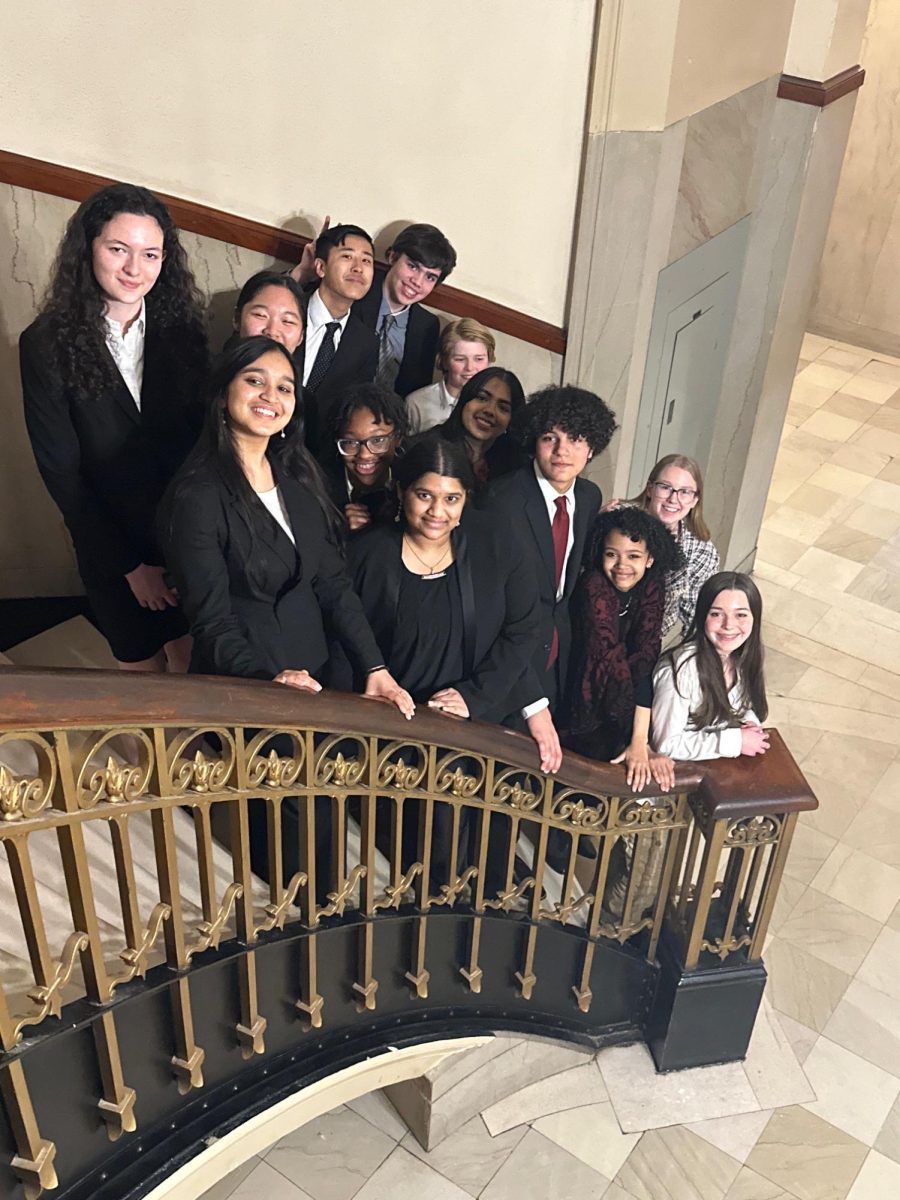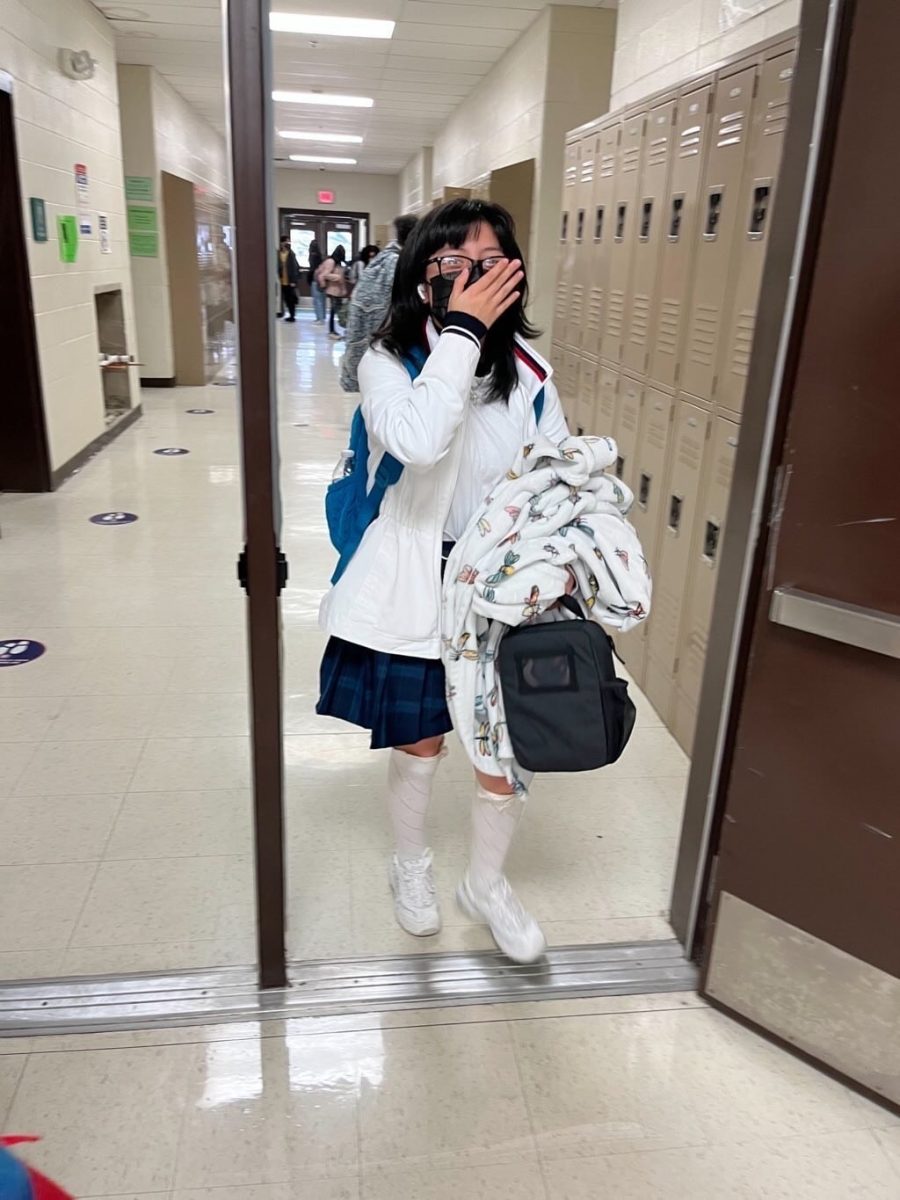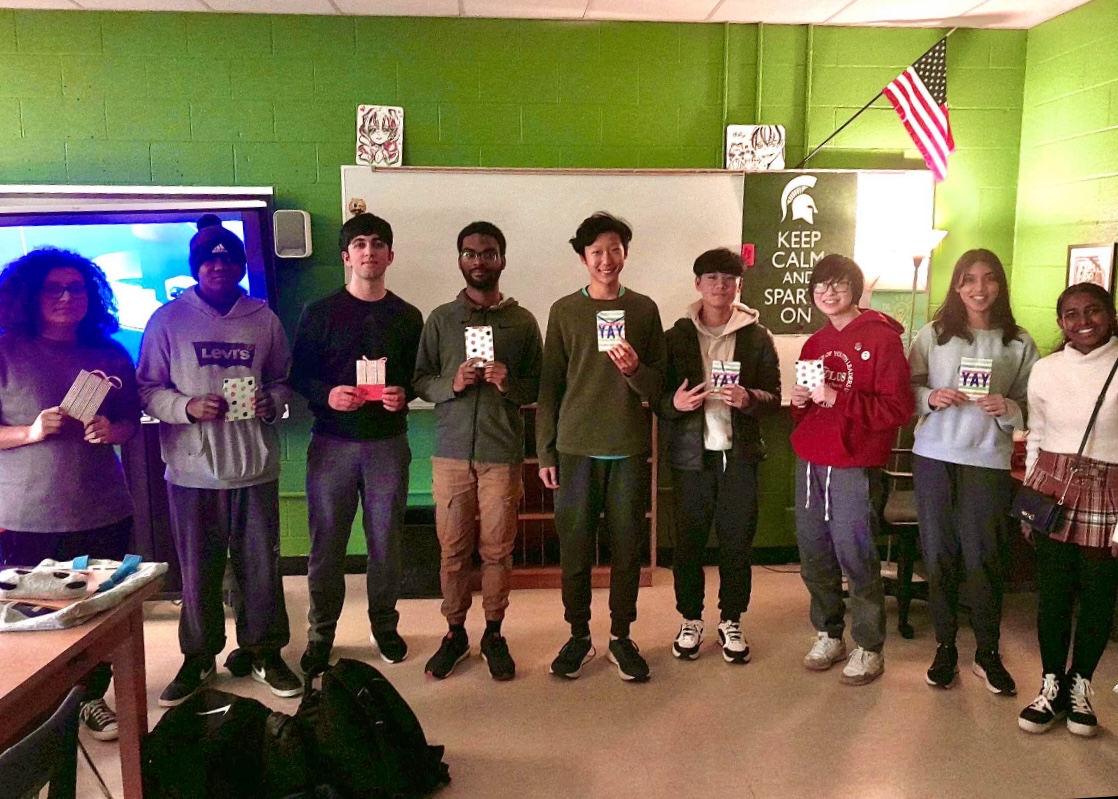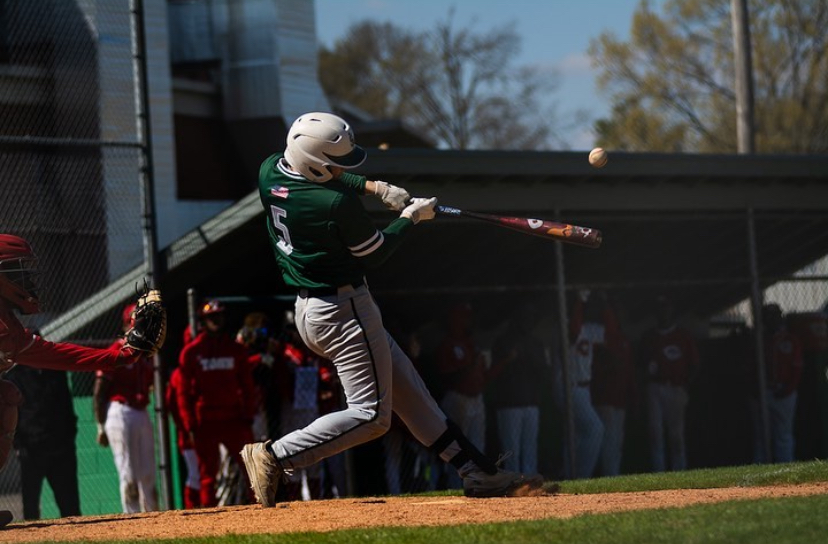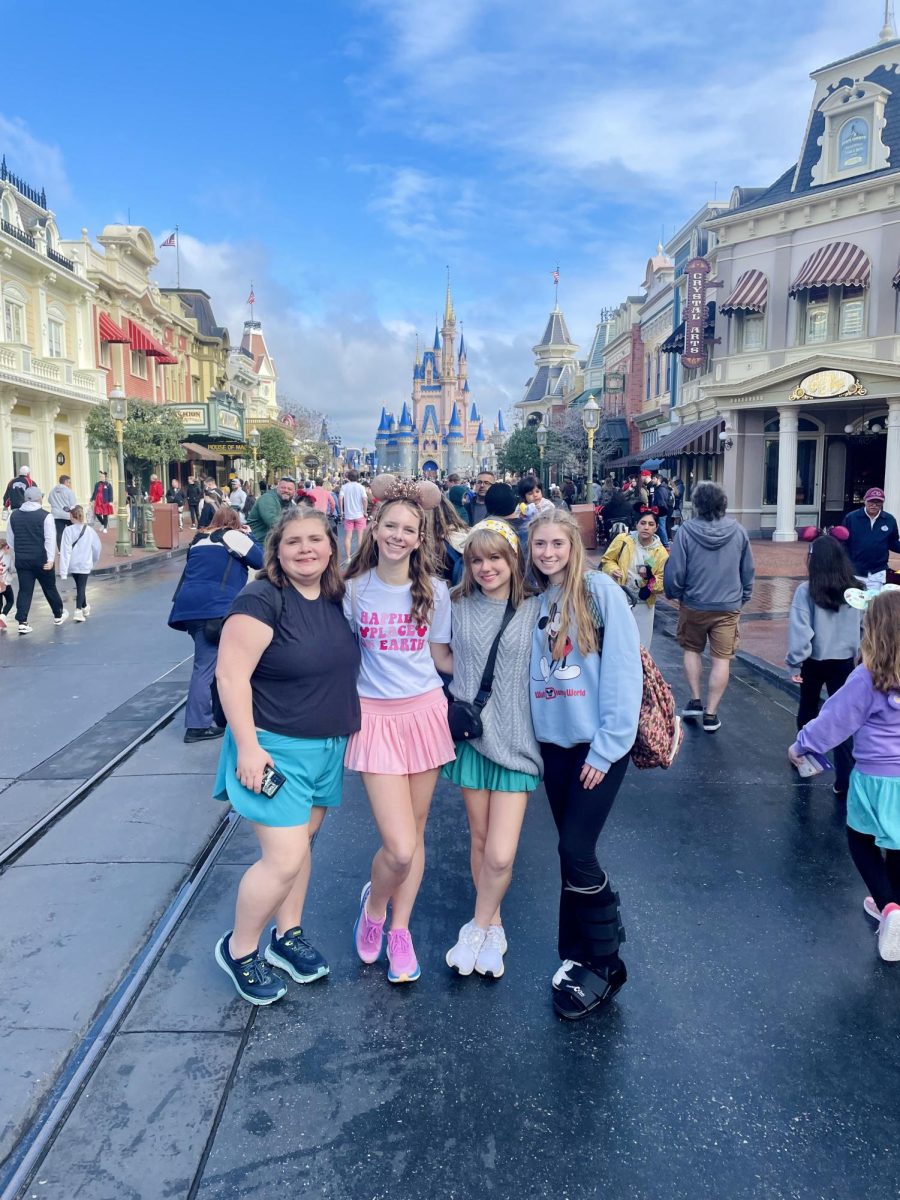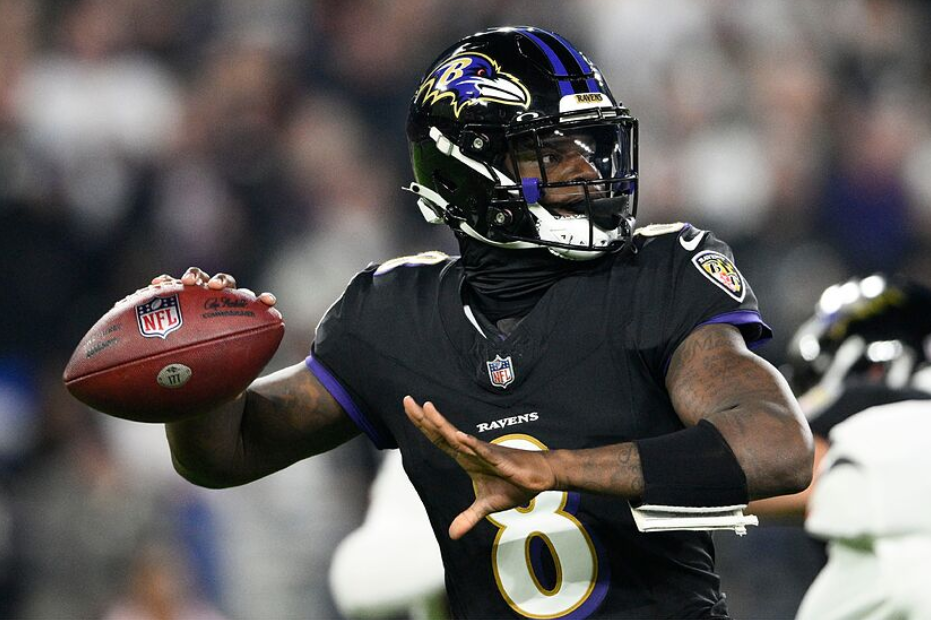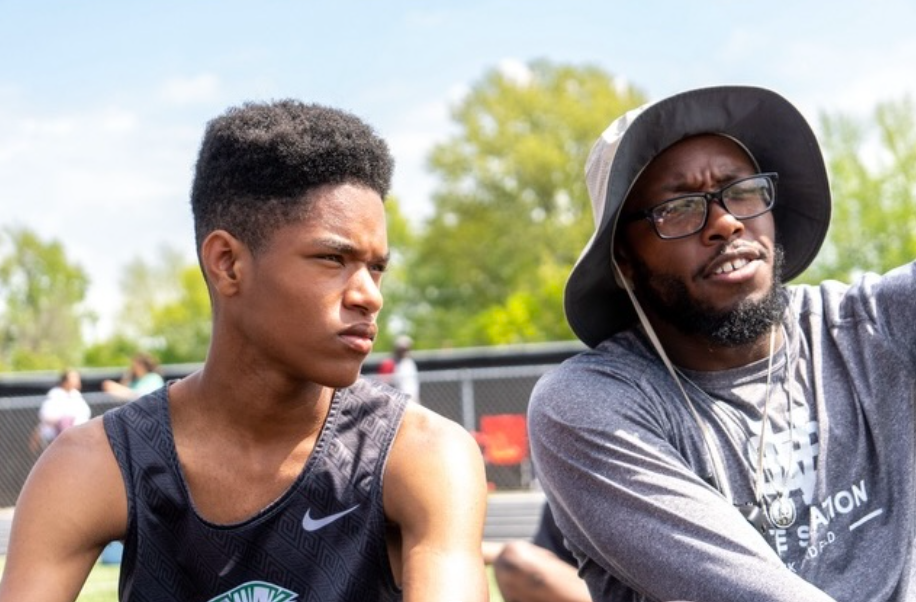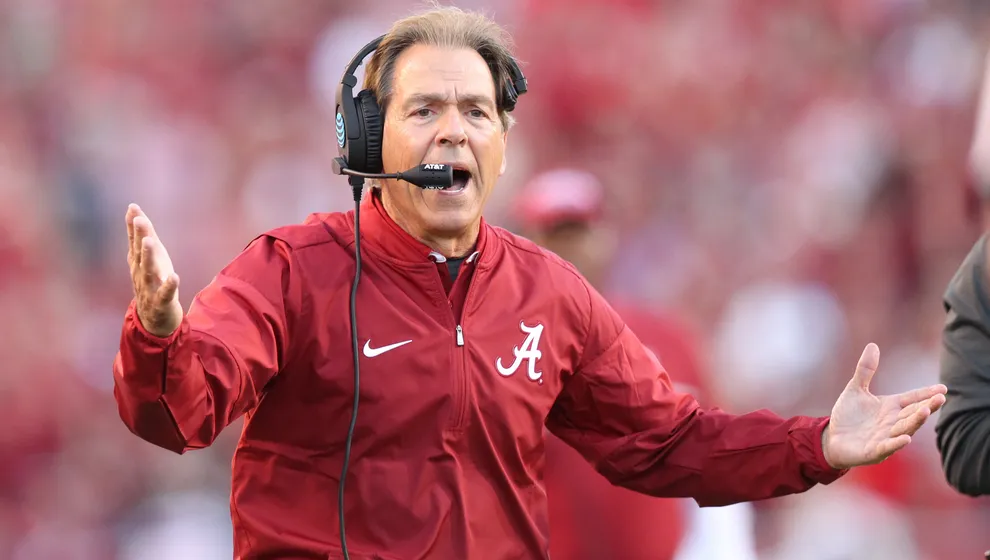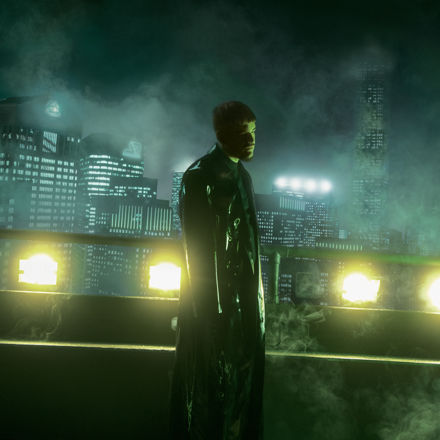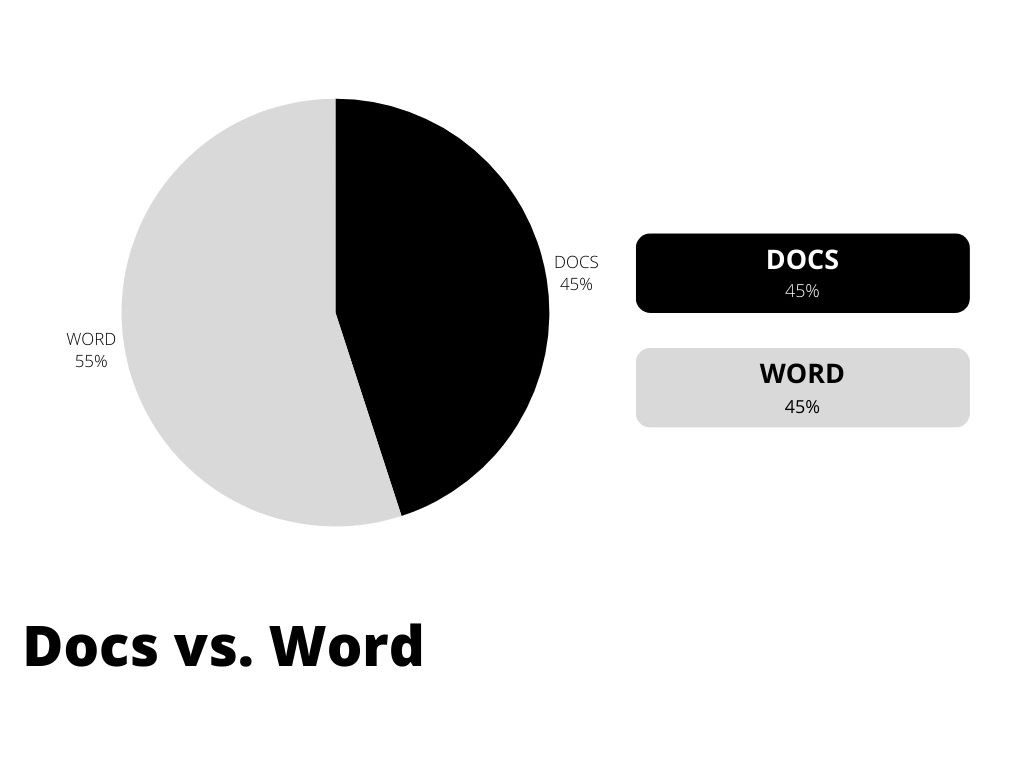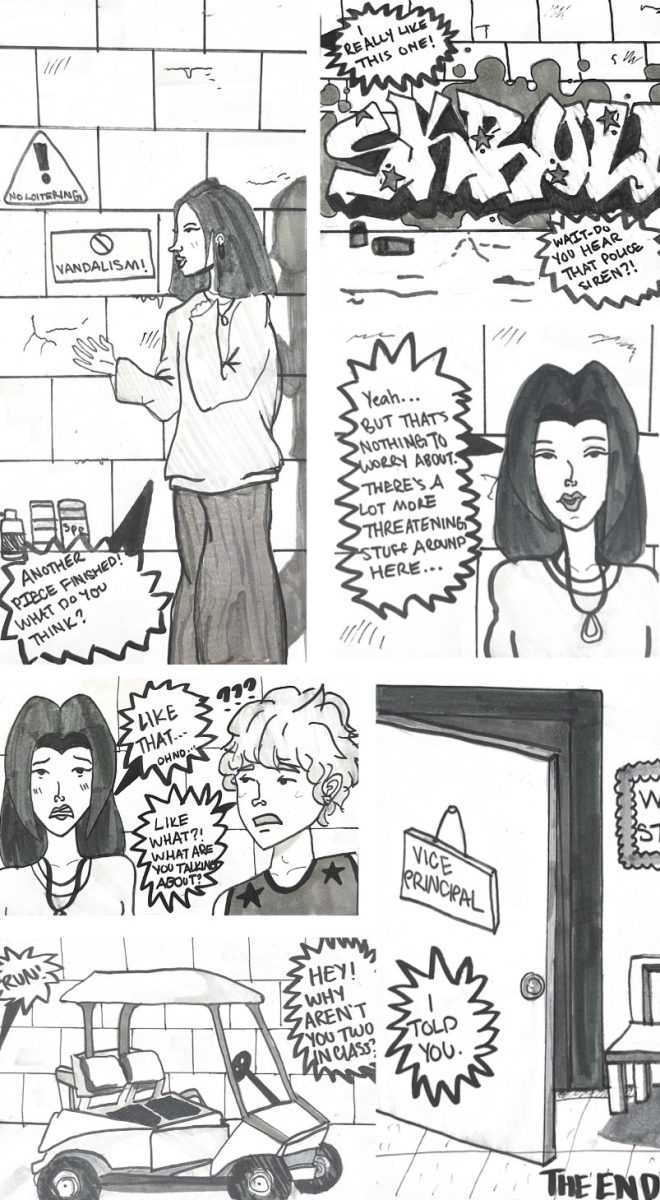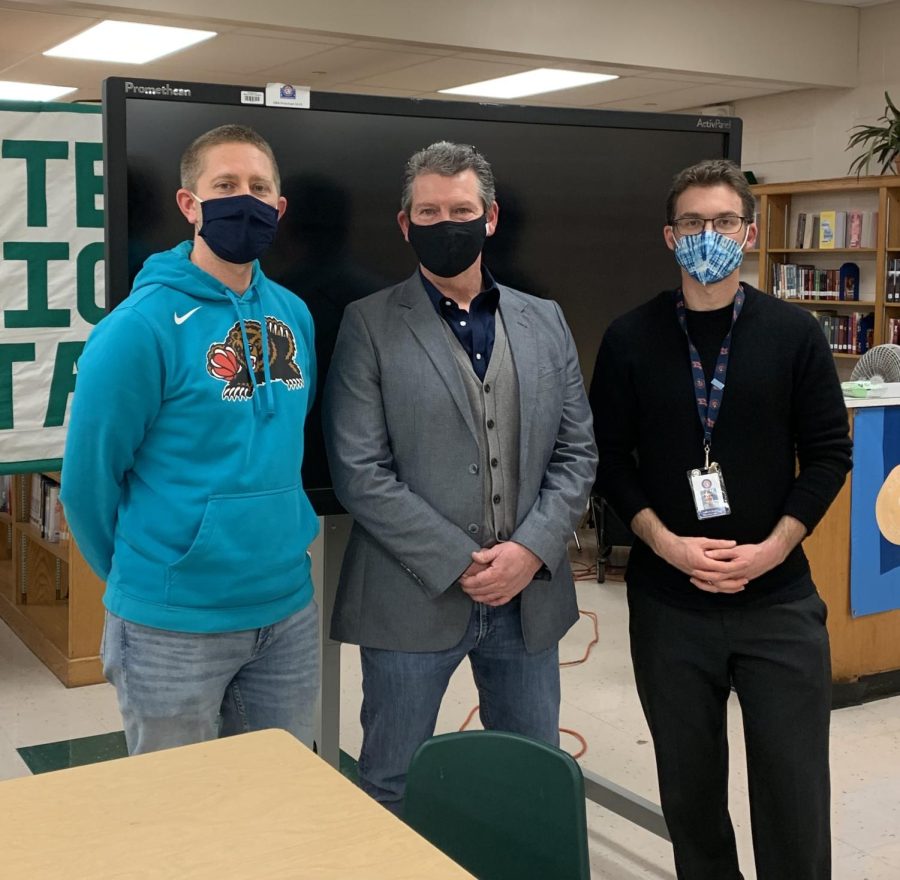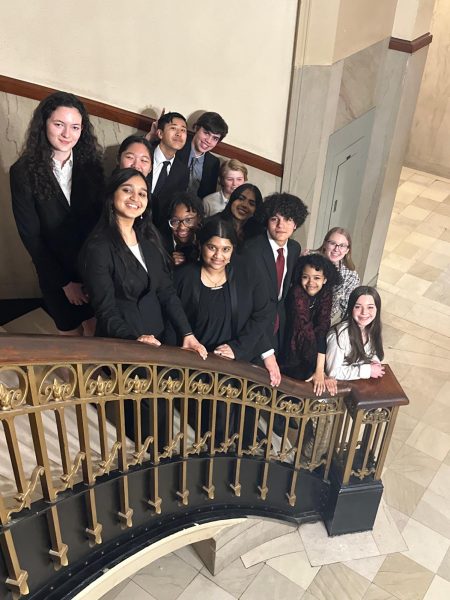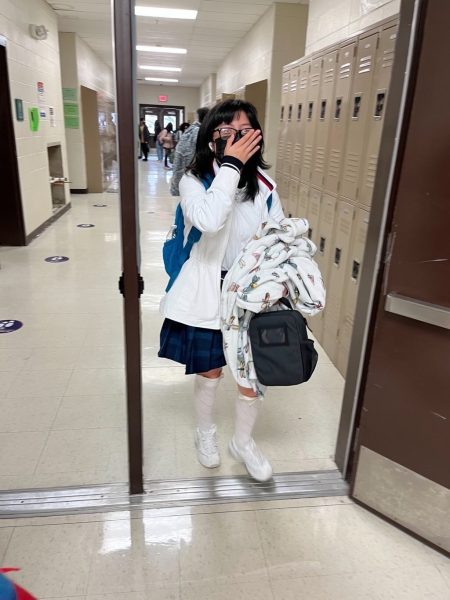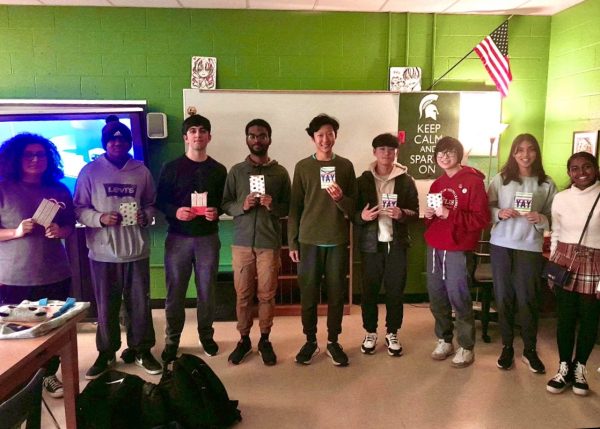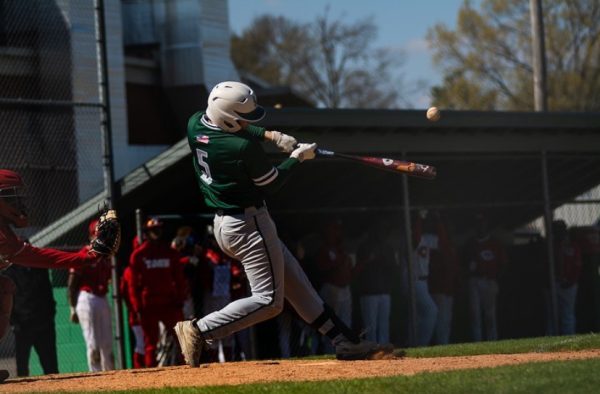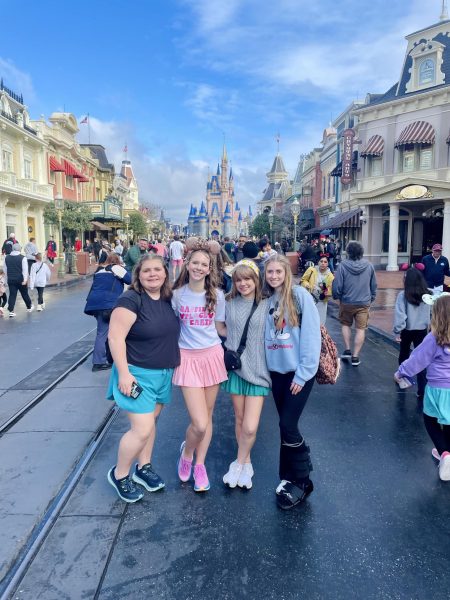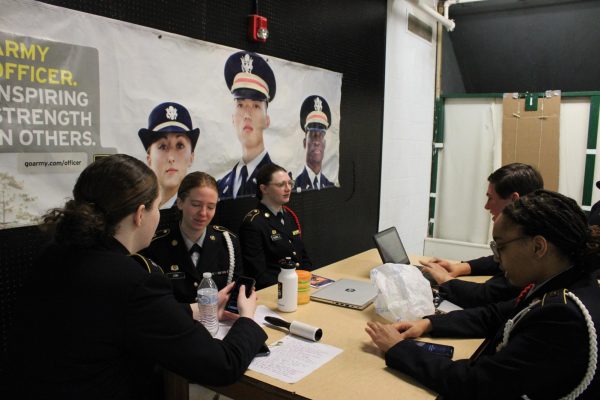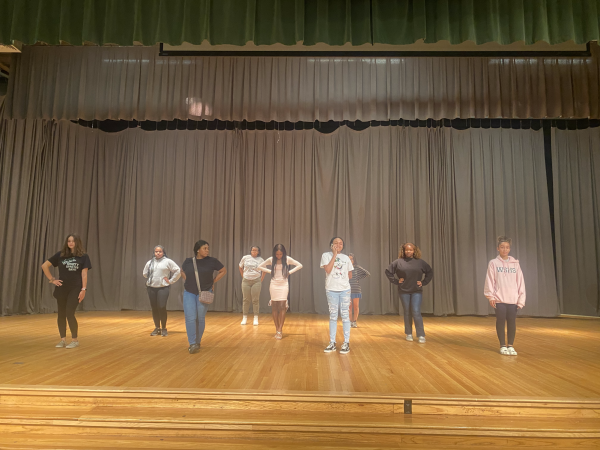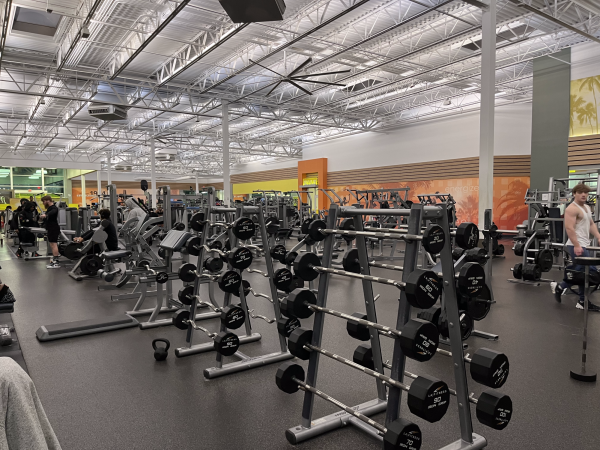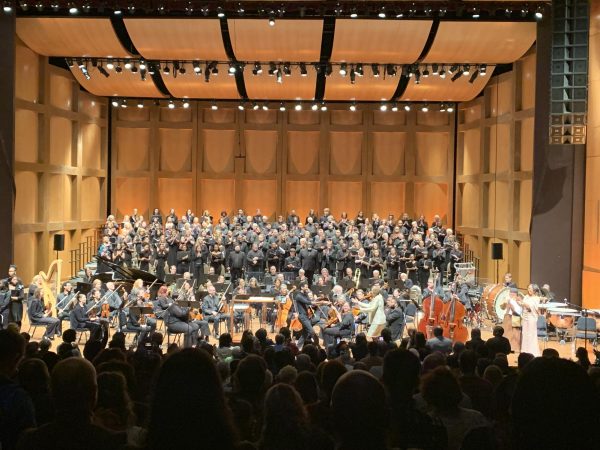Tingley spearheads informative meeting on Russia and Ukraine conflict
Curt Rakestraw (left), Mike Stephenson and Kyle Tingley (right) host an impromptu informational meeting afterschool on Friday, Feb. 25 about the developing conflict between Russia and Ukraine. With misinformation proliferating the media and student fears growing, Tingley uses this meeting to assuage concerns of the student body and direct them to more accurate sources, such as The Associated Press (AP), National Public Radio (NPR), or even websites such as Vox.
Fear. Confusion. Anger. People around the world felt a range of emotions as the news hit: Russia has invaded Ukraine. To get a jump on any of the concerns students may have had, DC American History II and Humanities teacher Kyle Tingley orchestrated an informational meeting discussing the history in the making — the Russian-Ukrainian conflict –- inviting students to come absorb information and ask questions.
“As history teachers, you recognize when something big is going on and also just detect it in the students,” Tingley said. “There was a level of heightened concern and also an awareness that something big was happening so I thought, if [students] are asking me, they’re asking across the campus, and it’s something that as teachers and as a school, hopefully we could get ahead of [the concerns] and try to address some of those questions directly.”
Several key points were hit throughout the meeting concerning not only the current events, but the history that has led up to what is happening now. Advanced Placement (AP) U.S. History and European History teacher Michael Stephenson began the event by going back to the late 17th and early 18th century with the Russian Tzar Peter the Great. Stephenson then moves into Russification, a tactic used by Russians to homogenize the cultures of different areas they conquered seen first in the late 18th century. The tensions caused during this period would only increase when Joseph Stalin committed what was nearly genocide through forced starvation. Many students remarked at the holistic understanding they gained, knowing more about the past conflicts that led to the present.
“I think [the meeting] was held very well, I liked how they went in chronological order — they gave some background information,” Kasey Brewer (9) said. “I didn’t know much about the background of the history between Ukraine and Russia and how it’s just been a long history of tension within Ukraine as well as against Russia.”
Following the historical details leading up to the conflict, AP Comparative Government teacher Curt Rakestraw dived into the political and social aspects of the conflict, providing important details on how the Russian government developed and some of the factors in the political moves the nation is currently making.
“In our politics class, [Russia does not] have an ideology — there’s not a set of beliefs that Vladimir Putin wants to achieve,” Rakestraw said. “What he provides the people — what they didn’t have in the 1990’s — is stability and international respect. In 2014 when he went and stole a very, very, very important piece of land the United States didn’t really do much … So if eight years ago he stole a state and got away with it, why wouldn’t he try to do it again now? He’s kind of pushing, trying to see what Biden is going to do and I guess we’ll kind of go from there.”
At the end of the meeting, students were given the opportunity to ask questions that were not only on their mind, but also on the minds of many students following this issue. Two important takeaways for students to note are Stephenson and Rakestraw’s thoughts on the future for American citizens: they doubt this conflict will escalate into a third world war, but if so, they assert that being drafted will likely not be a concern.
“No, we don’t fight people-wars anymore,” Rakestraw said. “We’re not going to be in a situation where we’re going to need hundreds of thousands of human bodies … but [being drafted] is not really something you have to worry about.”
Despite the last-minute planning, many students and teachers were pleased with the outcome of the meeting. With both an online and in-person audience present, students remark on the efficacy of such a spontaneous event.
“I think especially given how short of a time they had to plan, this was really effective,” Austin McCarthy (12) said. “I mean, they rarely do it electronically on top of in-person and they were also able to put it out relatively well across the school … [so] I think that overall this was held really well.”
As the war in Ukraine presses on, Tingley remarks on the possibility of holding that there may be more sessions similar this, depending on student interest. Each teacher, however, was particularly struck by how this moment in the present emphasizes the importance of history in every moment, because each moment made is history.
“For me, my guiding philosophy as a history teacher is to try to continue to impart the idea that history is relevant,” Stephenson said. “It’s not just something from textbooks or that you’re required by the state to take to graduate — it’s life lessons going forward.”
Your donation will support the student journalists of White Station High School. Your contribution will allow us to purchase equipment and cover our annual website hosting costs.
